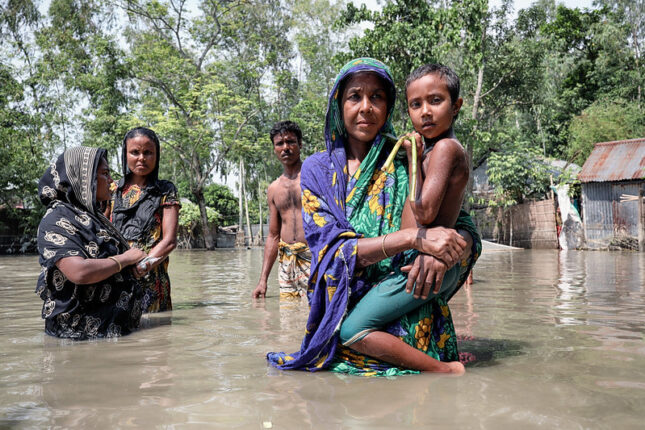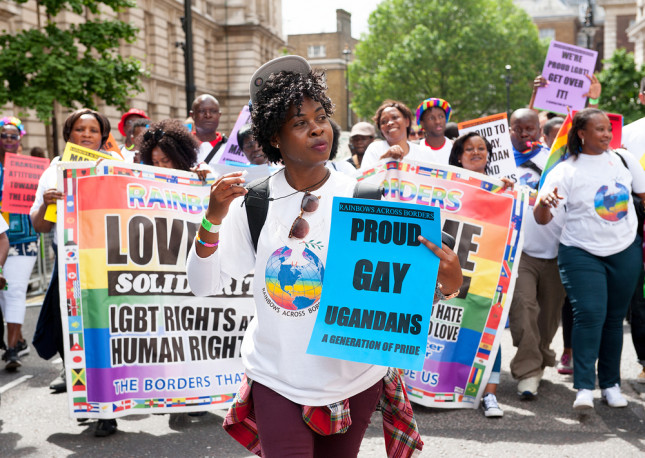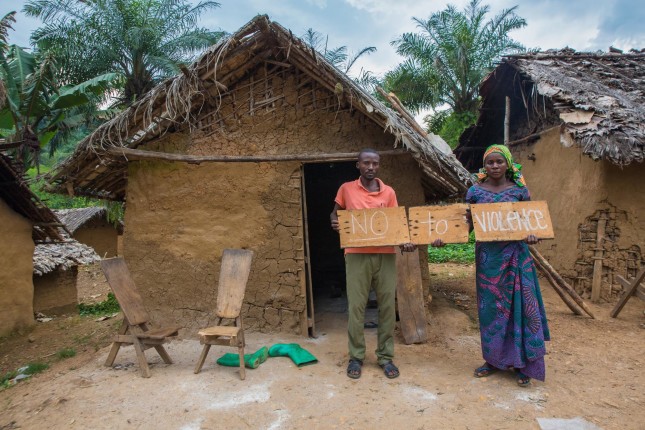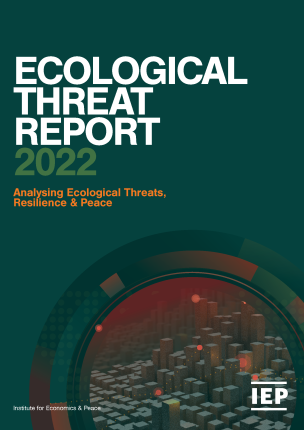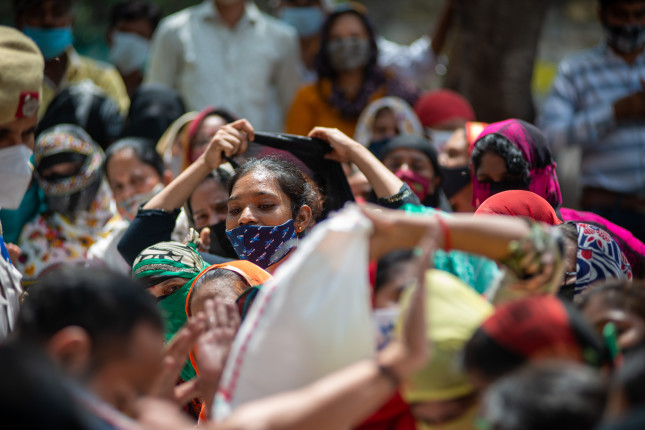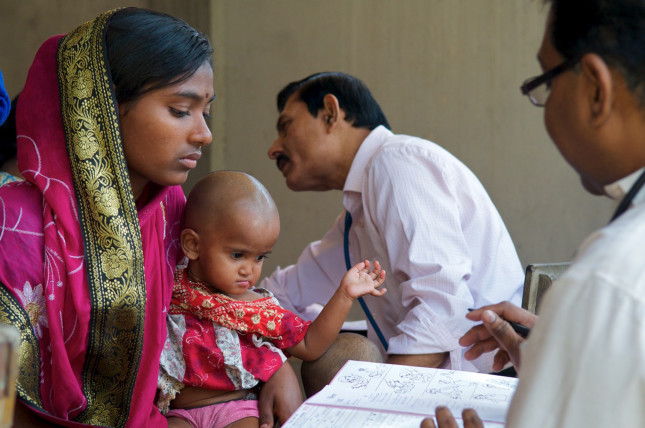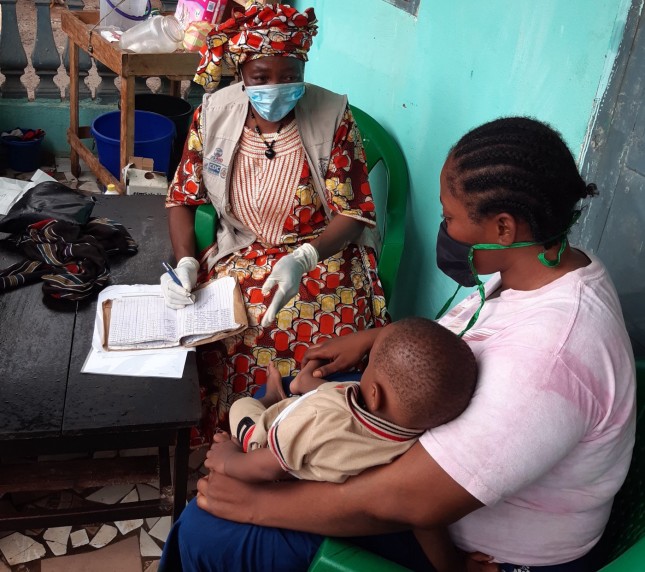
We stay on top of current research so you don’t have to. Check in for brief previews of new peer-reviewed studies, policy briefs, and grey literature.
PHOTO CREDIT: GERMÁN POO-CAAMAÑO.
-
War and Climate Change Intensify Global Water-related Conflicts
›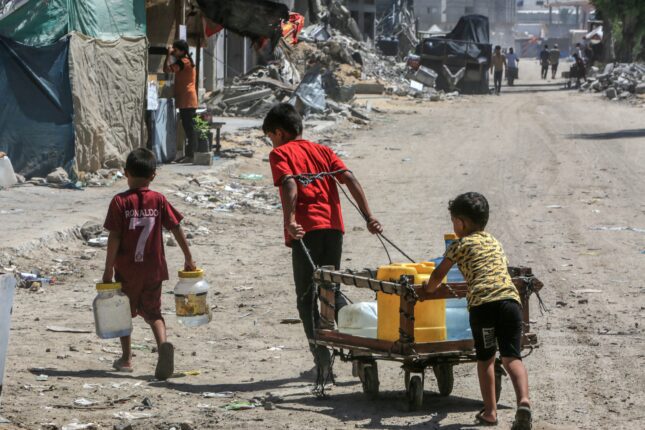
The Pacific Institute recently updated its Water Conflict Chronology—a database of water-conflict events that began to take form in the 1980s. The recent updates include the addition of 300 new entries to the database, highlighting the alarming rise of water-related conflicts in the last few years. Despite this overwhelming evidence of a growing trend in water-related conflicts, global attention toward addressing them remains negligible.
-
Climate Change and Gender Roles: Women’s Active Role in Adaptation
›
“The success or failure of any adaptation strategy or action highly depends on the understanding of the capacities of a community or an individual to adapt to climate-associated risks,” write the authors of a recent systematic review of literature, Gender and Adaptive Capacity in Climate Change Scholarship of Developing Countries.
-
Uganda’s Anti-Homosexuality Act: Criminalization’s Impact on HIV and AIDS Response
›
Four months ago, the resident medical officer at the HIV and AIDS clinic in Kampala, Uganda reported that the clinic treated up to 50 patients a day. Now, the clinic is relatively empty, and supplies of antiretroviral therapy (ART) pile up, unused.
-
Gender-Based Violence Continues to Impede Progress Towards Gender Equality
›
“COVID-19 and the backlash against women’s sexual and reproductive health and rights are further diminishing the outlook for gender equality,” states a recent report on the current progress toward gender equality across all 17 Sustainable Development Goals (SDGs) from the United Nations Entity for Gender Equality and the Empowerment of Women (UN Women) and the Department of Economic and Social Affairs. Yet the new report also zeroes in on another factor that is diminish progress on gender equality: violence. The authors observe that “violence against women remains high, global health, climate and humanitarian crises have further increased risks of violence, especially for the most vulnerable women and girls, and women feel more unsafe than they did before the pandemic.”
-
Ecological Threats, Resilience and Peace: A New Assessment of Hotspots
›
Which nations are most at risk of catastrophic outcomes due to intensifying ecological threats? The third edition of the Institute for Economics & Peace (IEP)’s Ecological Threat Report (ETR)—released on October 20, 2022— applies a lens of societal resilience to predict the hotspots most likely to suffer from instability and conflict in the future, and provides projections of ongoing trends to 2050.
-
Sex Workers Face Heightened Risks during the COVID-19 Pandemic
›
“The COVID-19 pandemic has amplified pre-existing inequalities and vulnerabilities,” writes the United Nations Population Fund (UNFPA) in a recent report on the impact of COVID-19 on sex workers in East and Southern Africa. The pandemic has had an impact on people in marginalized communities around the world, but for sex workers globally, “the impact on livelihoods, human rights and health has been devastating, leaving many struggling to survive,” states the report.
-
COVID-19 Costs: Declining Maternal and Child Nutrition in Low-and Middle-Income Countries
›
“The pandemic and related global economic recession are severe setbacks to already insufficient progress towards meeting the global nutrition targets set for 2025 for stunting, wasting, maternal anemia and breastfeeding,” write the authors of a 2021 study examining the effects of COVID-19 on child and maternal health and nutrition. Adequate nutrition in the perinatal period is essential for healthy mothers and babies, and COVID-19-induced poverty and disruptions to global supply chains have compromised the food security of people around the world, mostly in low-to-middle-income countries (LMICs).
-
Has Maternal Mortality Risen During the COVID-19 Pandemic? The Need For More Data
›
Since its onset, the impact of the COVID-19 pandemic on maternal mortality has been a question of great concern. And yet, few empirical attempts have been made to capture the potentially profound impact of the pandemic on maternal deaths, particularly in resource-limited settings.


